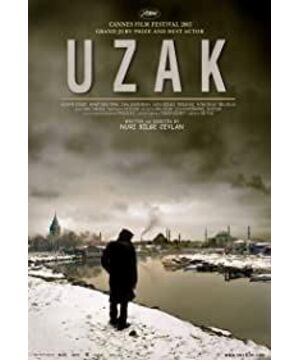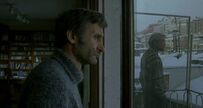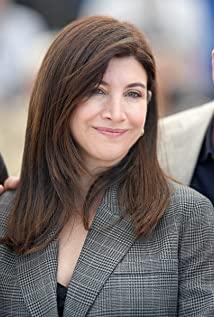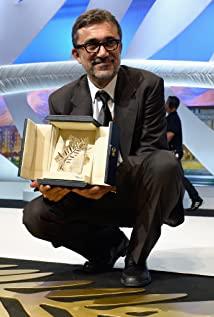A+ Reading Pamuk's "The Museum of Innocence", following Pamuk's words throughout the streets of Istanbul such as Beyoglu, Nisantash, Taksim, etc. during the day; Substantiation of the city. The former speaks of a man who is broken for love, while the latter speaks of a man who is tired of survival. Both of them searched like corpses in this huge city. Coincidentally, what they were looking for included women, or mostly women. I found that while Pamuk stood in the center of the world, huzun, so did Ceylon. Mosques in Istanbul, women with or without headscarves, chattering men, herds of wild dogs and cats, seagulls, cargo ships, the Sea of Marmara, snow. Maybe all this is easy for intellectuals to feel, and the Turkish nation is a mysterious nation, where did they come from? There is a sense of restlessness in the heart of every Turk, even though their Ottoman empire spanned east and west for six hundred years, in this city formerly called Constantinople now called Istanbul they still have no A sense of belonging, they feel like an outsider. The Ottoman Empire ceased to exist, neither did Constantine, the Greeks were driven away, the great powers were driven away, and Arabia was lost and further east and north, so farther and farther from where it started. The distant place may be an unfamiliar city that you have never been to, or a more unfamiliar and estranged hometown. I think of another novel by Pamuk, "The Strange Thing in My Head". The protagonist Mevlut feels that he is always alone in this world. In Istanbul, he can only live with his father and build a house in "One Night in the House". The photographer in Ceylon's "May Day" also reflects the feeling of alienation, frustration, and isolation from history in this huge and ancient city : In Istanbul, it is difficult for people to survive. At this point, two masters of different fields meet again with their works. Ceylon loves the mountains and rivers of Turkey, and Far Away no longer sees those villages in the far east from the perspective of the city. Looking at the countryside from the city is nothing but a counter-urbanization phenomenon that will inevitably occur in a highly developed country or society. Turkey as a whole is far from being so developed. Today, the rich are still those Westernized elements who made their fortunes in the early days of the republic. Some of them are businessmen, some are speculators, and some are descendants of imperial bequests. They are materially prosperous and spiritually free, and their advanced pursuits are to speak German or French and to study and travel in Paris. In the vast rural areas of the southern and northern parts of the eastern Anatolian plateau, most Turks live in poverty and their Both wallets and ideas are lacking. At this time, young people must leave their hometowns and go to a distant place to take chances. For them, the farthest place is not Manhattan, not Paris, not London, but also Istanbul. In the distance, they were greeted with indifference as outsiders with their tongue-in-cheek accents, and they paid a cruel price in the hope that they could integrate into this place and eventually become Istanbulites. Even being alone is better than being rotting and stinking in the countryside. The village has wheat fields, green trees, and relatives. Yet the beautiful villages are getting emptier, and they want what only ugly (to a certain extent) Istanbul can give, and that is something they have to compete with others to get.
The photographer in "Far Away" came to Istanbul with no money, just like most young people. When he reprimanded his cousin, what he didn't say might be the bitterness of years of hard work, a little talent, and maybe more or less luck. He gained social status and established a firm foothold in the city with a house, a car and a career. Such people are very few in the city army, and most of them are still at the bottom of the city. It is conceivable that after the great turmoil in life, although he succeeded, he could never truly overcome failure psychologically. He is afraid of the imbalance in his life. The arrival of his cousin has undoubtedly made his life unbalanced, and the serious illness of his mother has undoubtedly made his life unbalanced. He is sensitive and harsh, with a kind of unknowing ruthlessness and cowardice that is common among people like him after suffering through hardships and becoming a superior man. He is even more ruthless towards people, and he lives cautiously in the world. His paranoia comes from insecurity. In the end, he may have lost his lover completely and forever. And life awaits him. Whether he has lost or owned, poor or rich. His cousin has finally left, and we don't know whether he will return to his hometown or stay in Istanbul, but life will continue to beat him. The absurd and ridiculous psychiatrist's warning in "The Museum of Innocence": "Mr. Kemal, don't be afraid of life!" Through the comparison and appreciation of Pamuk and Ceylon's works, for the first time, I have doubts about the power of words. This is not the powerlessness of Pamuk, the power of Ceylon, but the image of the photographer in the last shot of "Distant" sitting alone by the sea, looking at the sea and smoking silently, which really touched my heart. In the soft part, I suddenly felt the surging sea in that shot, the chirping seagulls, and the white garbage bags rolling on the ground are all full of possibilities. They have various sounds and colors in their bodies, which may hide the truth of all things. Is the word shackled to things? The people and events in the text have become indistinguishable. Writing the text is equivalent to proclaiming the only possibility, hitting the last nail and closing the coffin? Words no longer give life, words become the murder weapon. Ceylon also has arguments and quarrels, but I like his silence, especially the tacit understanding he shows with the audience when he deliberately does not speak and let us feel it by ourselves. Like being tortured by a hidden disease beyond recognition, there are many things that I want to talk to my friends. When I go to the restaurant, my friends don't ask a word, but they call for two glasses of wine. Then I say to you, drink it. You obviously wanted to vomit quickly, but suddenly you lost your voice and buried your head in drinking, thinking that you still understand me!
View more about Distant reviews









